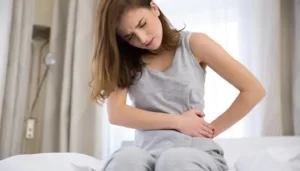What Are The Best Prescription Medication For Hemorrhoids?
Hemorrhoids are one of the most painful diseases these days, and obviously, you need medicine for a cure. What Are The Best Prescription Medication For Hemorrhoids? You asked. So, we have decided to address it. If you also want to know Which antibiotic is best for hemorrhoids? Then this article is specially designed for you.
Table of Contents
What causes infected hemorrhoids?
When healthy blood flow to the region is impeded, hemorrhoids are more prone to infection. Healthy blood flow to the rectal area ensures a regular supply of white blood cells and immune system components. This reduces the danger of infection.
Internal hemorrhoids are seldom infected. Internal hemorrhoid develops in the rectum. This is the part of the large intestine that terminates at the anus.
A prolapsed internal hemorrhoid occurs when an internal hemorrhoid pushes down from the rectum.
Internal hemorrhoids that have prolapsed may frequently be gently pulled back up into the rectum wall. However, it is still more prone to get infected than other varieties.
This is because the blood supply to the vein might be shut off. A strangulated internal hemorrhoid is a medical term for this.
An illness may spread swiftly without the nutrition, oxygen, and immune-system cells delivered in the circulation.
If you have a disease that decreases healthy circulation to the rectum, you may be at a greater risk of strangulated hemorrhoid and subsequent infection.
Among the situations that might result in reduced blood flow to the area are:
- diabetes
- The illness Crohn’s
- obesity
- coronary artery disease (narrowing of the arteries)
- clots in the blood
I am furthermore, having HIV or any illness that impairs the immune system might increase the likelihood of infected hemorrhoids. Infections may also occur during hemorrhoid treatment methods. Rubber band ligation, in particular, may occasionally result in disease.

The doctor uses this treatment to wrap a band around the hemorrhoid, cutting off its blood supply. Hemorrhoids will come out, and the skin will recover quickly. However, the afflicted tissue is exposed to infection from bacteria in your gut throughout this process.
What are the symptoms?
If you have infected hemorrhoids, you may experience all common hemorrhoid symptoms. Among these signs are:
Tiny quantities of blood in the toilet or on lavatory paper after a bowel movement swelling around the anus, itching in and around the anus discomfort, particularly when sitting or straining during a bowel movement a lump beneath the skin surrounding your anus.
How to diagnose infected hemorrhoids?
Your doctor will examine your medical history and present symptoms to determine whether you have a hemorrhoid infection. Fever, for example, might assist your doctor in making a diagnosis.
A physical exam will also be performed to look for visible symptoms of infection, such as redness surrounding hemorrhoids. If you have an internal hemorrhoid prolapsed, your doctor may opt to remove it before it becomes infected.
Blood tests such as a white blood cell count are performed if an infection is suspected. A low WBC count might suggest an infection.
Other tests, such as a urinalysis or X-rays, may be performed to search for diseases that have spread to other body regions.
What are the best prescription medication for hemorrhoids?
To treat infected hemorrhoids or infected tissue produced by a hemorrhoid removal treatment, an antibiotic such as doxycycline (Doxteric) is utilized.
Cefepime (Maxipime) and imipenem are antibiotics used to treat peritonitis (Primaxin). The sort of antibiotic administered to you will be determined by the severity of your illness and any difficulties or sensitivities you may have with particular prescriptions.
In extreme situations, surgery to remove infected tissue surrounding the hemorrhoid or tissue inside the belly (if the infection has progressed) may be required. This is known as debridement, and it may assist the body in healing from an illness.
Home cures, in addition to pharmaceuticals and possibly surgical treatments, may help ease symptoms. These examples include ice packs or cold compresses around your anus or numbing pain treatments such as acetaminophen (Tylenol) or ibuprofen (Advil) pads.

Changing your diet might also contribute to reduced straining during bowel motions. A high-fiber diet of fruits, vegetables, and whole grains will help keep your stool soft, increase volume, and prevent straining.
Before attempting any form of home therapy, always consult with your doctor. You don’t want to risk spreading the virus or jeopardizing your medical treatment.
